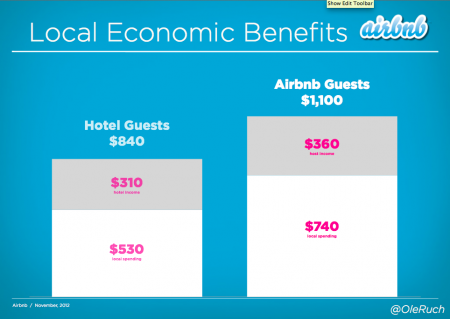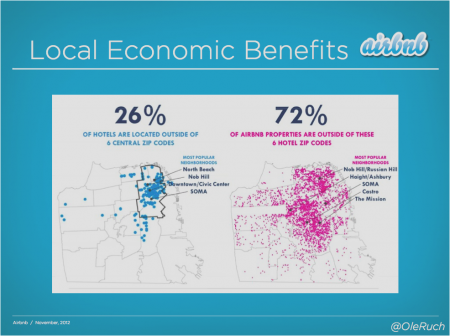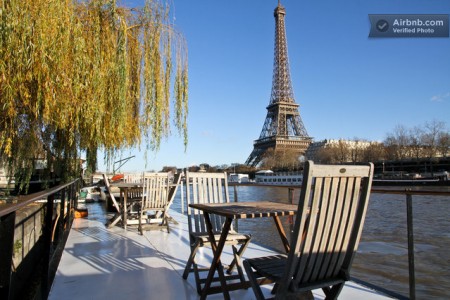Last week I was presenting at Travelnext in Utrecht, the Netherlands. One of the speakers was Ole Ruch from AirBnB. He shared some info that made me think.
Economic benefits
I thought that most AirBnB users were looking for cheap accommodations. They’re not.

Some (AirBnB funded) research in San Francisco concludes that AirBnB customers spend more money in destination. And the money (minus a commission) goes directly to the host.

The econonomic benefits are also distributed throughout the destination.
Primary reason for travel

People live in incredible places or have done amazing things with spaces. And through AirBnB travellers can now access them. You can stay
- in a house designed by Frank Lloyd Wright
- in hobbit house in Montana
- in one of fourteen private islands
- in one of seven available iglos
- a houseboat next to the Eiffel Tower
- a villa in Tuscany
- and many more unique places
You get my drift. There are some incredible private places for rent and people will travel just to stay there. Consumers are also shifting and are looking for unique and authentic experiences. Staying in a local neighbourhood or in somebody’s house is meeting that need.
I’ve never seen a DMO promote an AirBnB listing (or one of their competitors). Not even a very unique one. Don’t they take it seriously because it’s unconventional, because it’s a disruptor of their funding model or because hotel stakeholders are seeing it as a threat? Either way, the economic benefits are there and I think it’s a powerful tool in the toolbox that shouldn’t be ignored.

